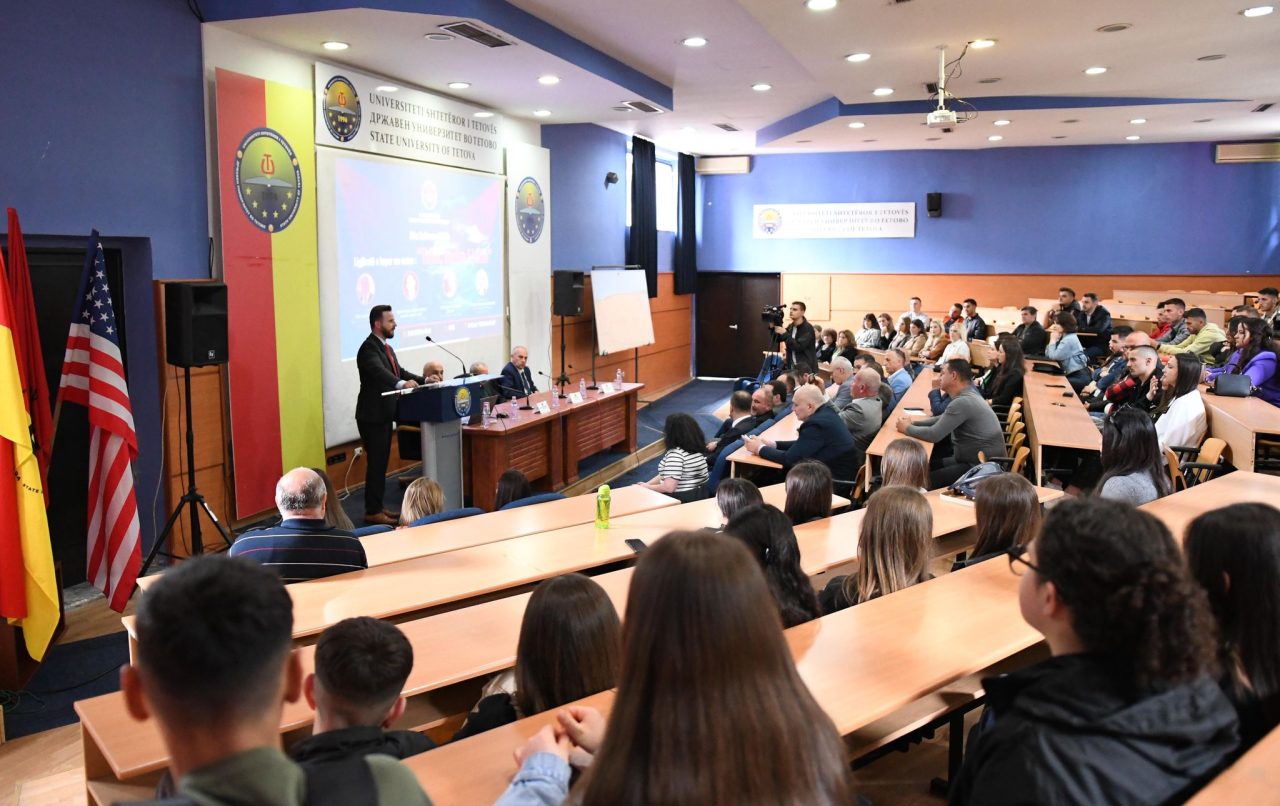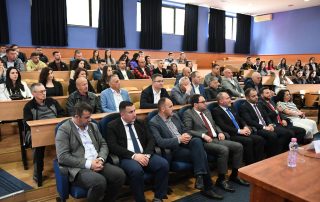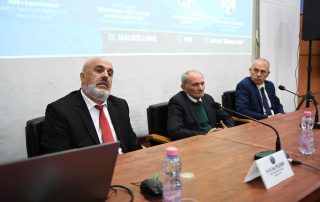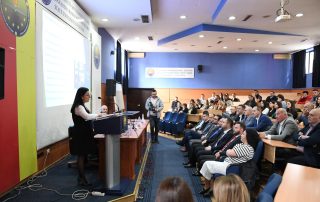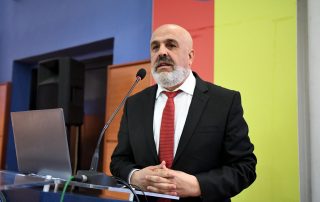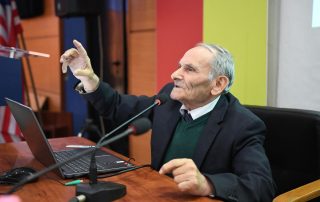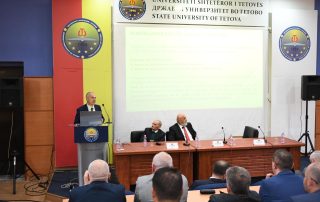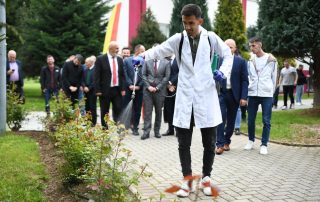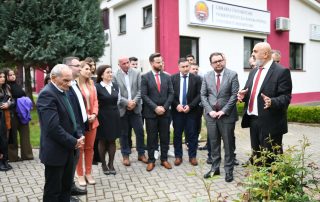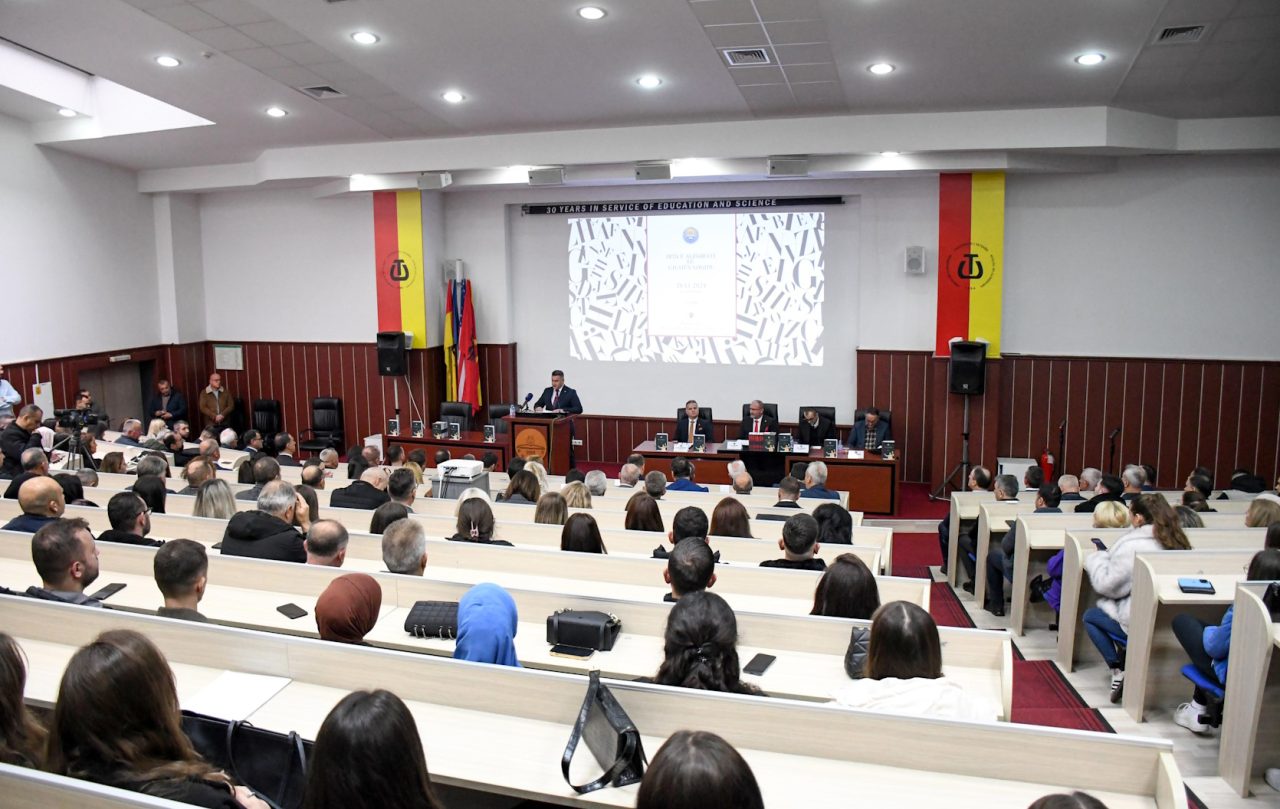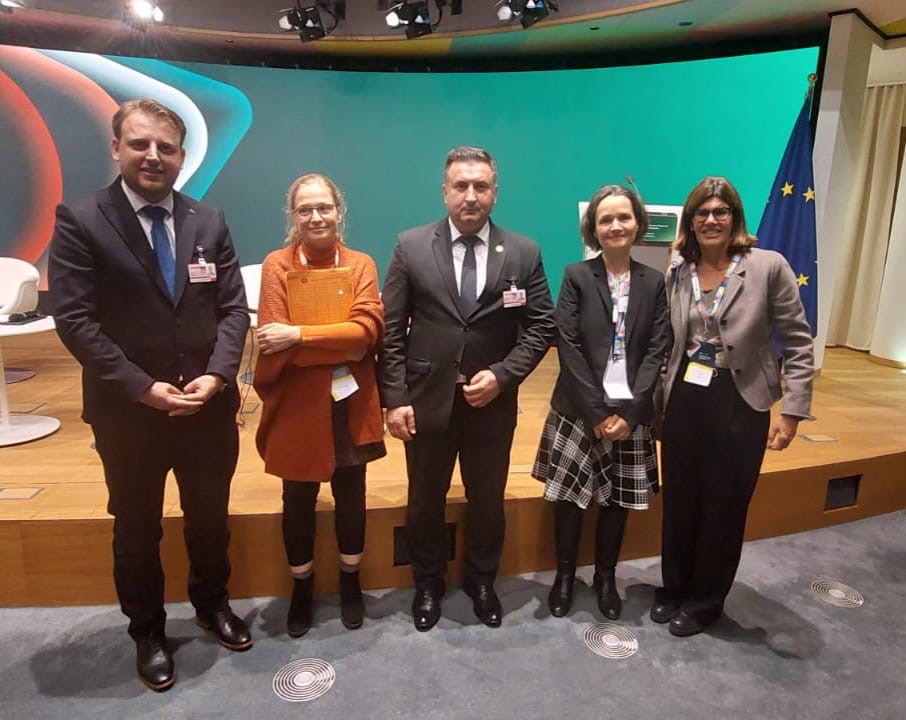Faculty of Agriculture and Biotechnology of the University of Tetova, through an open lecture on the topic “Earth, source of life”, marked the April 22, World Earth Day.
The dean of this faculty, Asst. Dr. Bardhyl Limani said that the purpose of marking this day through this activity is to create a stimulating work environment for staff, researchers, students, to feel free to share ideas, discuss opportunities and challenges, practices and various questions. “Through this activity, and many others, that I believe we will carry out in the future, we hope to collectively encourage the rise of our Faculty, self-empowerment of students, motivation of graduates for studies in agriculture, with the sole purpose of contributing to the development of agriculture, the science of soil cultivation, plant and animal production,” said Asst. Dr. Bardhyl Limani.
The Vice-Dean for science of this faculty, Asst. Dr. Zejnedije Ademi said that in line with the motto of this year’s Earth Day, we must reflect on the critical need to invest in our planet. “Climate change, deforestation and pollution are just some of the challenges that threaten the health and well-being of our planet and society as a whole, which require immediate action to support sustainable development practices, waste reduction and environmental protection policies. Every small step we take can make a big difference”, emphasized Asst. Dr. Zejnedije Ademi.
This activity was followed by the lectures of professors in this field. University professor Prof. Dr. Hazir Pollozhani in his lecture spoke on “Challenges of Modern Agriculture”. According to him, one of the most widespread definitions, sustainable agriculture is an agricultural production system that takes into account current and future needs. “In fact, one main concern is not to damage natural resources for immediate gain, causing damage that will become unsustainable for future generations. Therefore, the goal is to develop agricultural practices capable of rational use of resources, ensuring the protection of biodiversity and limiting the use of chemicals, such as pesticides, that can harm human health and the environment. Sustainable agriculture is a comprehensive approach that can be put into practice in many different ways. Sustainability is based on the management of the living environment, land management, plant production management, livestock management, water management and integrated protection of plants”, Prof. Dr. Hazir Pollozhani
While the Prof. Dr. Enver Isufi from the Biological Agriculture Institute -Durrës, his lecture was titled “Biological agriculture, long-term economic, ecological, social interests”. During the lecture, he was focused on biological agriculture in the world, Europe and the Balkans. “In the world, according to the standard of biological agriculture, 75 million hectares are managed or about 1.6% of the agricultural surface. In Europe, 8.5% of the surface is managed according to the biological standard. In the Balkans, according to the countries with biological agriculture, 0.5-1% of the total agricultural area is managed. In 2021, the Commission and the European Parliament took a historic decision. By 2030, organic agriculture will reach 25% of the agricultural area, or more than four times more than today. There were two motivations for this decision: Preventing global warming and Learning from the Covid-19 pandemic, which showed that healthy food increases immunity and limits disease. So, it was considered more reasonable to invest in better food than in better medicines”, said Prof. Dr. Enver Isufi.
While Prof. Dr. Alirami Saliji, lecturer at the Faculty of Agriculture and Biotechnology at the University of Tetova spoke about “The role of integral protection in agriculture and the environment”. “Integral protection represents the careful application of all possible techniques for the control of harmful organisms, in which case pesticides are kept at the level of economic reasonableness, thereby reducing or minimizing the risk to human health and the living environment. Then the pest organisms are identified and the monitoring system is set up. Then the definition of the economic thresholds and finally the direct measures for the control of harmful organisms, which include: mechanical measures, physical measures, biological measures, biotechnological measures and chemical measures”, Prof. Dr. Alirami Saliji.
The activity for the marking the World Earth Day was concluded with a practical demonstration about the integral protection of plants in the open spaces in the University Park, by the students of the Faculty of Agriculture and Biotechnology, led by Prof. Dr. Aliram Saliji.

